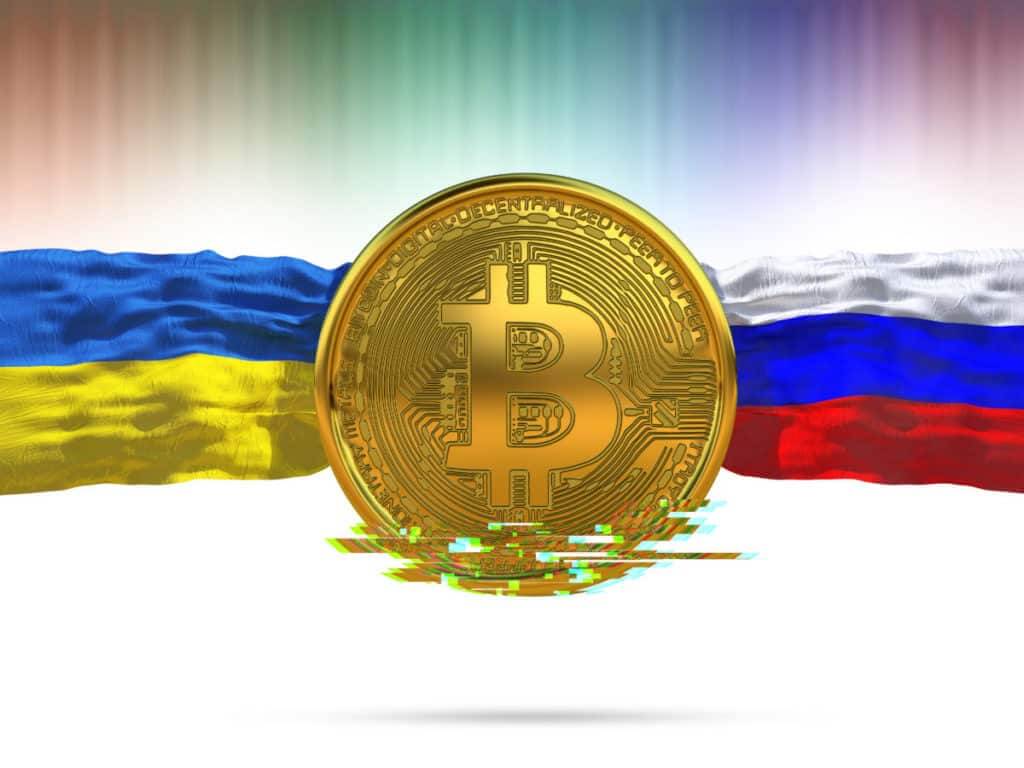Crypto’s Role in Russia-Ukraine Conflict
The role of cryptocurrencies such as Bitcoin was a central talking point during the Russian invasion of Ukraine.
The imposition of sanctions and the ensuing turmoil in financial markets raised many questions about how crypto would participate in the recent events.
Following the invasion of Ukraine, the Western world hit Russia with a series of economic sanctions. With these sanctions, the western world aims to isolate the country from the global financial system.
Key Russian figures and financial institutions have been placed on a U.S. sanctions list, effectively barring U.S. companies from doing business with them. Meanwhile, the United States, European allies, and Canada have removed Russian central banks from an interbank messaging system called SWIFT, blocking access to global financial markets.
Sanctions caused the Russian ruble to plummet.
This has sparked debate over whether cryptocurrencies could be a way for those on sanctions lists to circumvent restrictions.
This is because of Bitcoin’s and other digital currencies’ decentralized nature. It means that no central authority, such as the central bank, issues or controls it. Sending cryptocurrencies to other users does not go through traditional financial installation routes.
First, however, the blockchain is a public record of activity. Hence, the movement of funds from one account to another can be trackable. That doesn’t make it a good tool for avoiding sanctions.
At the same time, Russian oligarchs and corporations do not have enough liquidity to transfer funds.
Bitcoin and Tether, a so-called stablecoin, pegged to the USD, have seen a surge in ruble trading since the conflict.
Bitcoin surged from yearly lows above $44,000 in a day as the war in Ukraine intensified this week, prompting speculation that its safe-haven time has come.
- Support
- Platform
- Spread
- Trading Instrument

